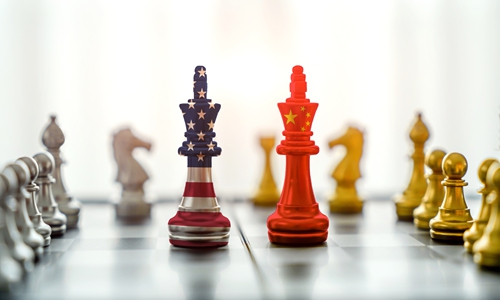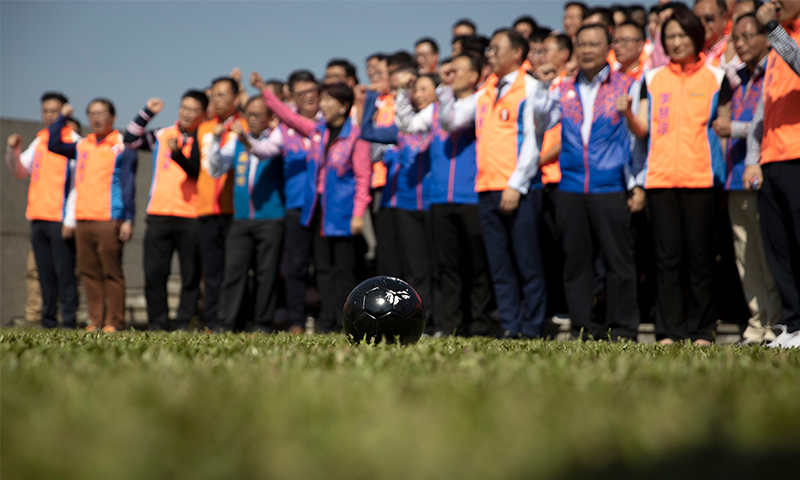
Photo: IC
The US House of Representatives passed the so-called Hong Kong Human Rights and Democracy Act on November 20 by a vote of 417 to one. The bill had unanimously passed in the US Senate on November 19, and is going to the White House for US President Donald Trump's signature or veto.Some analysts said Trump is facing a dilemma. If he signs the bill, China-US relations will be damaged; If he vetoes it, he will be acting against the will of the House and the Senate. It is very likely that Trump will sign the bill, because it is a new handy tool for the US to interfere in China's internal affairs.
The bill requires the US government to conduct an annual review of Hong Kong's status and re-evaluate whether the city warrants to be treated as a separate customs territory by the US. According to the bill, if the US believes there are so-called human rights abuses in Hong Kong, it can impose sanctions on Chinese officials concerned. If the bill is eventually put into force, it will have a very bad impact on Hong Kong and will further affect Hong Kong's prosperity in the long run.
The US wants to use political issues, such as the degree of Hong Kong's autonomy and so-called human rights and democracy, to determine the city's special economic status. The standard is completely in the hands of the US. Once the bill is implemented, Hong Kong's efforts to stop violence and restore order will be disrupted. The bill will harm the interests of Hongkongers. As Chinese Foreign Ministry spokesperson Geng Shuang said on November 20, the bill will undermine US interests in Hong Kong as well. It still remains to be seen how the bill will be applied if it is signed.
The real purpose of the US is not to review Hong Kong's so-called democracy and human rights every year, but to contain China. The bill has almost gained unanimous support in both the House and Senate, which shows that trying to contain China has almost become a consensus in the US. Hindering China's development may be the only consensus reached by political elites in the Republican and Democratic parties.
If the bill is signed, it will affect the Chinese mainland in the short run, because Hong Kong and the mainland are closely connected economically. This is an important reason why Joshua Wong Chi-fung, one of Hong Kong's pro-West radial riot leaders, and anti-China forces in the US support the bill.
However, in the long run, China will find ways to deal with the bill. For the moment, China should do its own things properly. It is opening its doors increasingly wider. As long as the country remains internally stable and prosperous, international capital will find alternative destinations other than Hong Kong.
More importantly, the Hong Kong Special Administrative Region (HKSAR) government and Hongkongers should shoulder their responsibilities. The prosperity of Hong Kong is related with Hongkongers' own welfare, and they should act to protect it. To begin with, Hongkongers should not put up with the riots. The HKSAR government should use all necessary measures to stop the violence, restore stability in the city, and punish the radical separatists and activists who would not hesitate to be traitors just for personal gain.
The article was compiled by Global Times reporter Li Qingqing based on an interview with Zhi Zhenfeng, a legal and policy expert at the Chinese Academy of Social Sciences. liqingqing@globaltimes.com.cn


